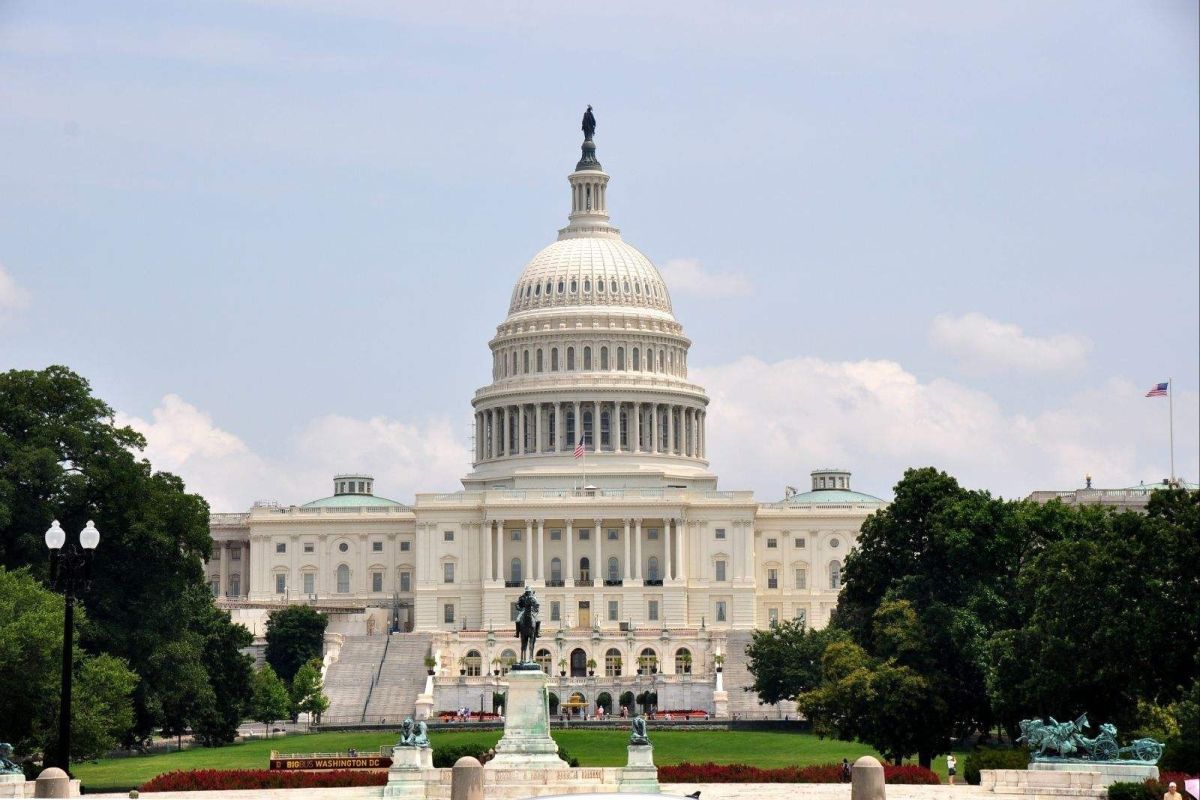Trump, Xi and Putin – imperialists all
Over the past few weeks US president Donald Trump has repeatedly claimed that the United States should “take back” the Panama Canal and that it should assume control of Greenland – one way or another.
The US treats Hong Kong, which has its own legal systems, differently from the Chinese mainland, as far as trading is concerned.

(Photo: IANS)
The United States Senate unanimously passed a bill on Tuesday that would require an annual review of the special treatment Hong Kong receives under US law after almost six months of protests in the Asian financial club.
The vote will be seen as a boost for Hong Kong’s pro-democracy protesters, and a challenge to the Chinese government at a time of strained US-China relations, marked by a protracted trade war and geopolitical jostling.
Advertisement
The bill is seen as a challenge to the Chinese government amid tense US-China relations.
Advertisement
The US treats Hong Kong, which has its own legal systems, differently from the Chinese mainland, as far as trading is concerned.
Under the bill, the US President can slap sanctions against officials responsible for arbitrary detention of any individual of Hong Kong or human rights violations in the former British colony.
The bill also lays out a process for the US President to impose sanctions and travel restrictions on those who are found to be knowingly responsible for threatened or carried out arbitrary detention of any individual in Hong Kong, or other violations of internationally recognised human rights in the former British colony.
The democracy bill has received broad bipartisan support and will now go to the House of Representatives, which passed a slightly different version of the bill last month. Then, it will head to the White House for President Donald Trump to review.
Early in the day, China has condemned the passing of the Hong Kong Human Rights and Democracy Act of 2019 in the US Senate.
“The move grossly interfered in Hong Kong affairs and China’s internal affairs, seriously violated international laws and the basic norms governing international relations and blatantly bolstered the opposition and radical violent criminals in Hong Kong, which once again laid bare in front of the whole world the overbearing nature of some US politicians and their evil attempt to contain China’s development,” said Yang Guang, Spokesperson, Hong Kong and Macao Affairs Office of China’s State Council.
Yang said that the continuous violent activities in Hong Kong have seriously trampled the rule of law and social order, disturbed Hong Kong’s prosperity and stability, challenged the bottom line of the “one country, two systems” principle.
Earlier on Monday, China’s top legislature said that0 Hong Kong courts have no power to rule on the constitutionality of legislation under the city’s Basic Law, which includes a proposed ban on face masks.
The ban on face-covering came into force in October, when the city’s unelected pro-Beijing leader invoked colonial-era legislation for the first time in more than 50 years.
In October, the city’s democracy activists went to court to challenge an emergency law that ban protesters from wearing masks, as protesters vowed to use Halloween parties to defy the restrictions once more.
The city’s embattled leader Carrie Lam had introduced a ban on people wearing masks at public rallies, colonial-era emergency legislation that has not been used in more than half a century.
The protests, which have been drawing massive crowds since June following a contentious proposed extradition law that has been pulled by the government, have mutated into a movement that seeks to improve the democratic mechanisms that govern Hong Kong and safeguard – or expand – the region’s partial autonomy from Beijing.
The controversial China extradition bill was withdrawn in early September but the movement has morphed into a wider campaign for greater democracy and against alleged police brutality.
(With inputs from agency)
Advertisement